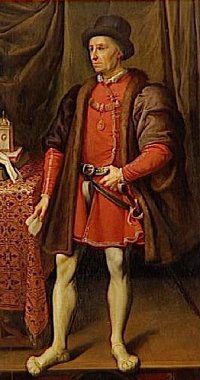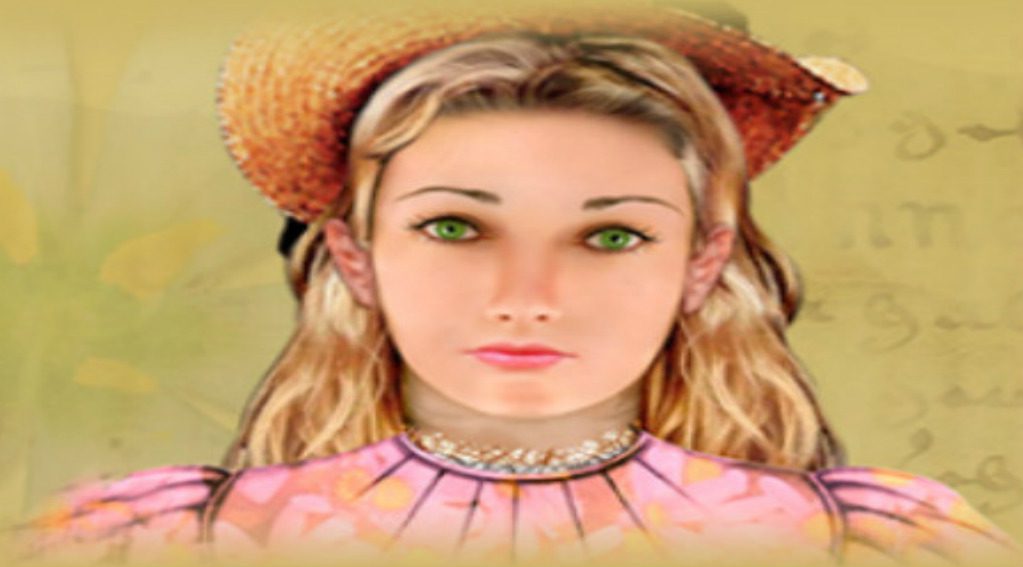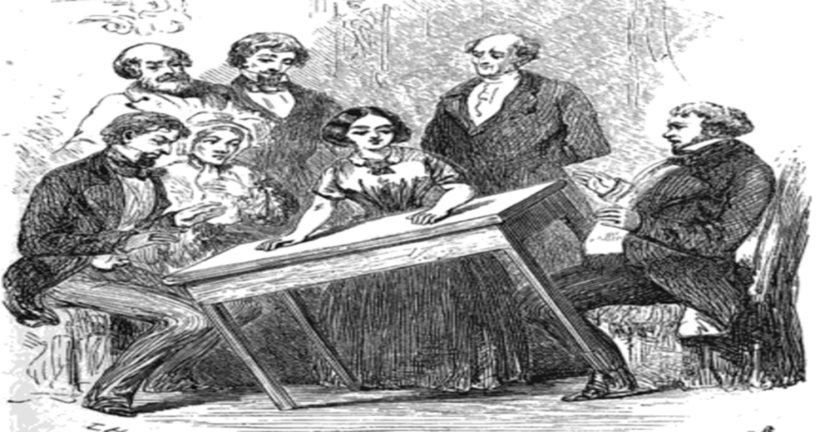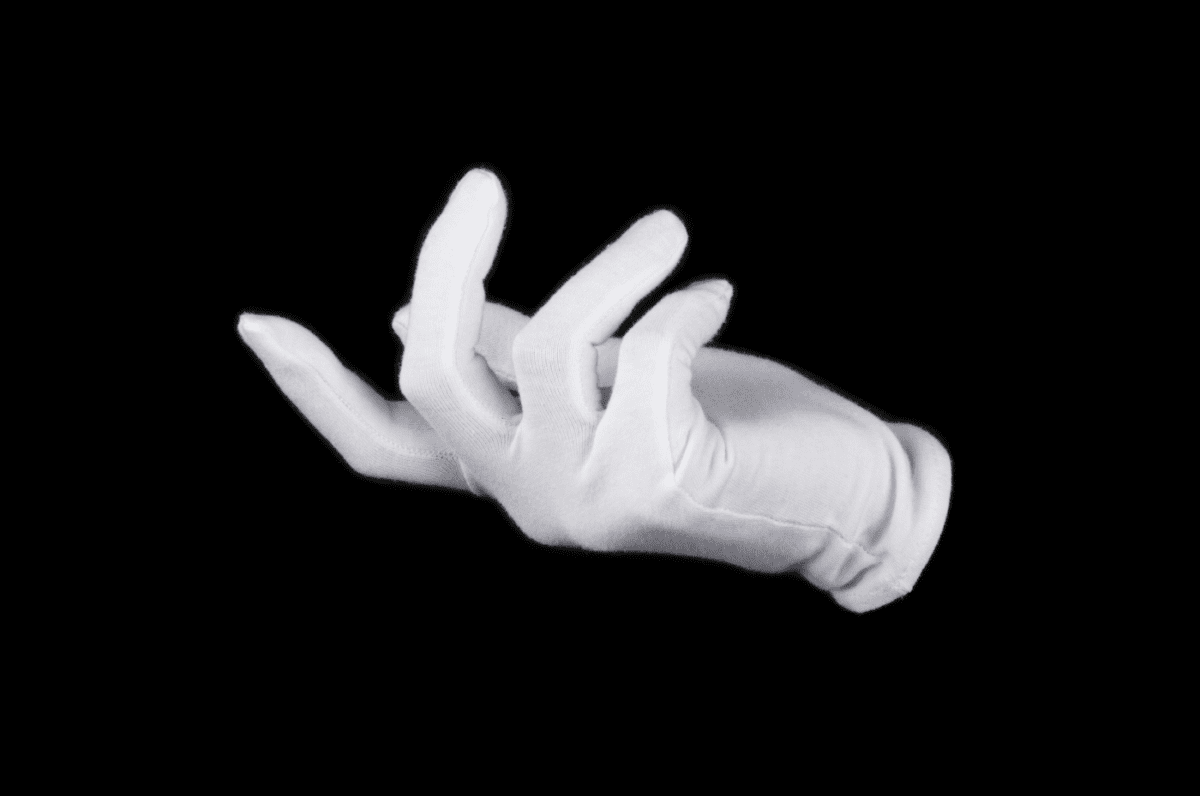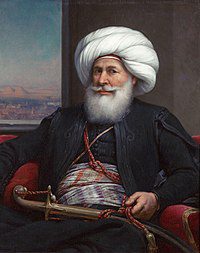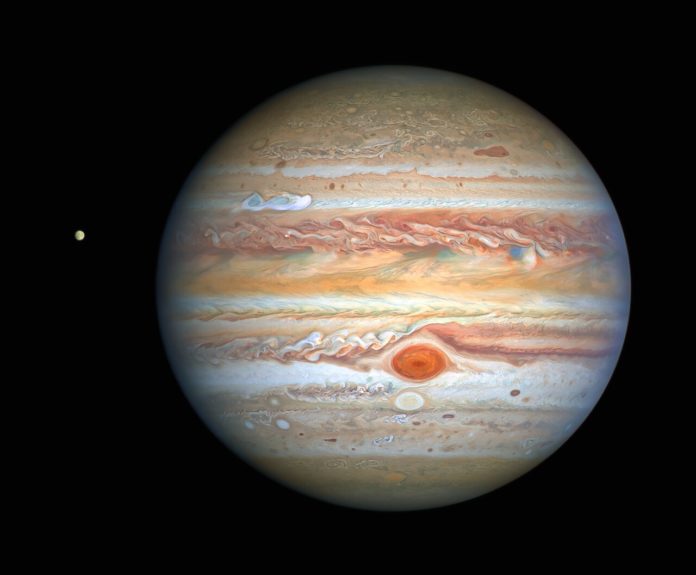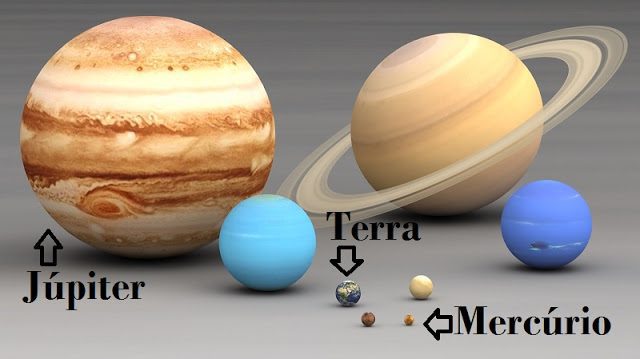https://www.youtube.com/watch?v=3NVwXDL3HdA
Allan Kardec starts the Magazine of the month of May 1858 bringing to light a reflection on the Manifestations Physics of the Spirits, which, for many, is somethingsupernatural” and even impossible.
This is due to the fact that we think that the Spirit is an abstraction. Says Kardec: Asked if they are immaterial, the Spirits replied: “Immaterial is not the right term, because the Spirit is something; otherwise it would be nothing. It is material, if you like, but of a matter so ethereal that for you it is as if it did not exist”.
Thus, the Spirit is not an abstraction, as some think; it is a being, but whose intimate nature escapes our gross senses.
According to observations, and not a system, the Spirit recently freed from the body keeps its physical characteristics of the immediate incarnation, involved, almost always, in a disturbance that follows for more or less time, depending on each one. After this period, the body becomes for them like an “old clothes”, which they no longer want.
Let us return, then, to the various accounts of tangible apparitions, as mentioned in the case of Mr Home, in the April issue. Kardec takes up this fact to conclude the following: that the soul does not leave everything in the coffin: it takes something with it.
There would, therefore, be, in us, two kinds of matter besides the Spirit: the gross matter, which constitutes the body, and a more subtle matter, which constitutes what Kardec called perispirit.
This subtle matter, as it were, extracted from all the parts of the body to which it was attached during life, retains its form. This is why all spirits are seen and why they appear to us as they were in life.
O perispirit, however, is not something rigid and compact like the body: it is an expandable and flexible matter, and that is not limited to the body, as in a shell: it expands around it, at the rate of centimeters or meters, and that is what gives origin of what many call the aura. In reality, the aura is like a field of energies of the solid body and not the perispirit.
Disentangling himself from this obstacle that was compressing him, the perispirit stretches or contracts; turns and, in a word, it lends itself to all metamorphoses, according to the will that acts upon it.
Observation proves - and we insist on the word observation, because our whole theory is a consequence of the facts studied - that the subtle matter, which constitutes the second envelope of the Spirit, only gradually detaches itself from the body, and not instantly.
The bonds that unite soul and body are not suddenly broken by death. Now, the state of disturbance that we observe lasts as long as the detachment takes place. Only when this detachment is complete does the Spirit recover the complete freedom of its faculties and the clear consciousness of itself..
Experience also proves that the duration of this detachment varies with individuals. In some it takes three or four days, while in others it is not completed until after several months. Thus, the destruction of the body and putrid decomposition are not enough for the separation to take place. This is the reason why certain spirits say: I feel the worms gnawing at me.
And we asked ourselves: Is there an explanation for the supposed Spiritual Hospitals? Watch the video with our discussion about it.
In some people, separation begins before death: they are those who, in life, were elevated by thought and by the purity of their feelings, above material things. In them death finds only weak bonds between soul and body, which are broken almost instantly. The more materially man lived; the more his thoughts have been absorbed in the pleasures and worries of the personality, the more tenacious are those bonds.
It seems that subtle matter is identified with compact matter and that a molecular cohesion is established between them. This is why they only separate slowly and with difficulty.
the matter of perispirit is something subtle enough to escape our sight and pass through solid objects, but, according to the will of the Spirit, it can be condense enough, however momentarily, to become solid as rock. We have an example of this in Mr. Home of April, where hands are mentioned that came out of the middle of the table, but that became tangible. Bozzano also cites this in Spiritism and the Supernormal Manifestations.
THE an apparent, tangible hand offers resistance: it exerts pressure, leaves impressions, operates a traction on the objects we hold. There is, therefore, a force in it. Now, these facts, which are not hypotheses, can lead us to the explanation of physical manifestations.
Kardec continues, stating that these hands (or other bodily ones), when condensed, has sufficient strength, just as we would, he can also hit us, lift and knock down a table, touch a bell, pull a curtain and even give us an invisible slap.
Where could there be the capacity for such subtle matter to be capable of such material force?
But Kardec asserts: we don't want to test the Spirit with our laboratory instruments, especially after we've taken steam as a basis for comparison: It is a new order of ideas, outside the scope of the exact sciences. That is why these sciences do not offer us the special ability to appreciate them.
Kardec takes these comparisons just to be able to show others that the facts of physical manifestations are not something so inconceivable, nor so far from what we already know (or knew at that time).
At the Book of Spirits, there is an explanation about:
257. The body is the instrument of pain. If it is not the primary cause of this, it is at least the immediate cause. The soul has the perception of pain: this perception is the effect. The memory that the soul retains of pain can be very painful, but it cannot have physical action. In fact, neither cold nor heat is capable of disorganizing the tissues of the soul, which is not susceptible to freezing or burning. Do we not see every day the memory or apprehension of a physical illness producing the effect of that illness, as if it were real? Do we not see them until they cause death? Everyone knows that those who have had a limb amputated often feel pain in the missing limb. Of course, there is not the thirst, or even the starting point of pain. The only thing is that the brain has kept this impression. It will therefore be lawful to admit that something analogous occurs in the sufferings of the Spirit after death. An in-depth study of the perispirit, which plays such an important role in all spiritist phenomena; in vaporous or tangible apparitions; in the state in which the Spirit finds itself at death; in the idea, which he so often manifests, that he is still alive; in the very moving situations of the suicides, the tortured, those who let themselves be absorbed by material pleasures; and countless other facts, shed light on this question, giving rise to explanations that we now summarize.
The perispirit is the bond that unites the Spirit to the matter of the body; it is taken from the environment, from the universal fluid. It participates at the same time in electricity, in the magnetic fluid and, to a certain extent, in inert matter. One could say that it is the quintessence of matter. It is the principle of organic life, but not of intellectual life, which resides in the Spirit. It is, moreover, the agent of external sensations. In the body, the organs, serving as conduits, locate these sensations. When the body is destroyed, they become general. Hence the Spirit does not say that it suffers more from the head than from the feet, or vice versa. However, do not confuse the sensations of the perispirit, which has become independent, with those of the body. The latter can only be taken as a term of comparison and not by identity. Freed from the body, spirits can suffer, but this suffering is not corporeal, although it is not exclusively moral, like remorse, since they complain of cold and heat. Nor do they suffer more in winter than in summer: we have seen them go through flames without experiencing any pain. Consequently, the temperature does not make any impression on them. The pain they feel is not, therefore, a physical pain properly speaking: it is a vague intimate feeling, which the Spirit itself does not always understand well, precisely because the pain is not located and because external agents do not produce it; it is more reminiscence than reality, reminiscence but equally painful. Sometimes, however, there is more to it than that, as we shall see.
Experience teaches us that, at death, the perispirit detaches more or less slowly from the body; that, during the first minutes after disincarnation, the Spirit finds no explanation for the situation in which it finds itself. He believes he is not dead, because he feels alive; he sees the body to one side, he knows that it belongs to him, but he does not understand that he is separated from it. This situation lasts as long as there is any connection between the body and the perispirit. A suicidal man once told us, "No, I'm not dead." And he added: However, I feel the worms gnawing at me. Now, undoubtedly, the worms did not gnaw at his perispirit and even less at the Spirit; they only gnawed at his body. As, however, the separation of the body and the perispirit was not complete, a kind of moral repercussion was produced, transmitting to the Spirit what was happening in the body. Repercussion is perhaps not the proper term, because it can lead to the assumption of a very material effect. It was rather the vision of what was happening to the body, to which the perispirit still kept it connected, which caused him the illusion, which he took for reality. So, then, there would be no reminiscence in the case, since he had not been gnawed by worms in life: there was the feeling of a fact of the present. This shows what deductions can be drawn from the facts, when carefully observed. During life, the body receives external impressions and transmits them to the Spirit through the perispirit, which probably constitutes what is called nervous fluid. Once dead, the body feels nothing, because there is no Spirit or perispirit in it. The latter, detached from the body, experiences the sensation, however, as it no longer reaches him through a limited channel, it becomes general to him. Now, since the perispirit is not really more than a simple agent of transmission, since the consciousness is in the Spirit, it is logical to deduce that, if a perispirit could exist without a Spirit, that one would feel nothing, exactly like a body that he died. Likewise, if the Spirit did not have a perispirit, it would be inaccessible to any painful sensation. This is what happens with completely purified spirits. We know that the more they purify themselves, the more ethereal the essence of the perispirit becomes, whence it follows that the material influence decreases as the Spirit progresses, that is, as the perispirit itself becomes less coarse.
But, it will be said, since it is through the perispirit that pleasant sensations, as well as unpleasant ones, are transmitted to the Spirit, since the pure Spirit is inaccessible to some, it must be equally inaccessible to others. So it is, in fact, with regard to those that come solely from the influence of matter that we know. The sound of our instruments, the perfume of our flowers make no impression on you. However, he experiences intimate sensations, of an indefinable charm, of which we can form no idea, because in this respect we are like born blind before the light. We know this is real; but by what means is it produced? This point eludes knowledge. We know that in the Spirit there is perception, feeling, hearing, seeing; that these faculties are attributes of the whole being and not, as in man, of a part of the being alone; but how does he have them? We ignore it. The spirits themselves cannot inform us about this, because our language is inadequate to express ideas that we do not have, precisely as the savages, for lack of proper terms, are used to translate ideas referring to our arts, sciences and philosophical doctrines.
In saying that spirits are inaccessible to the impressions of matter that we know, we are referring to very high spirits, whose ethereal envelope finds no analogy in this world. The same is not true of those with a denser perispirit, who perceive our sounds and odors, not, however, only through a limited part of their individualities, as happened to them when they were alive. It can be said that, in them, the molecular vibrations are felt throughout the being and thus reach the sensorium commune, which is the Spirit itself, although in a different way and perhaps also giving a different impression, which modifies the perception. They hear the sound of our voice, yet they understand us without the aid of the word, only through the transmission of thought. In support of what we say is the fact that this penetration is so much easier, the more dematerialized the Spirit is. As far as sight is concerned, this, for the Spirit, is independent of the light, which we have. The faculty of seeing is an essential attribute of the soul, for whom obscurity does not exist. It is, however, more extensive, more penetrating in the most purified. The soul, or the Spirit, therefore, has in itself the faculty of all perceptions. These, in bodily life, are obliterated by the grossness of the bodily organs; in out-of-body life, they unwind, as the semi-material envelope becomes ethereal.
Hauled from the environment, this wrap varies according to the nature of the worlds. When passing from one world to another, the spirits change their envelope, as we change clothes, when we pass from winter to summer, or from the pole to the equator. When they come to visit us, the higher ones take on the terrestrial perispirit and then their perceptions are produced as in the common spirits of our world. All, however, inferior as well as superior, do not hear or feel, but what they want to hear or feel. Having no sense organs, they can freely make their perceptions active or null. They are obliged to listen to only one thing: the advice of good spirits. The view, this is always active; but, they can make themselves invisible to each other. Depending on the category they occupy, they can hide from those who are inferior to them, but not from those who are superior to them. In the first moments that follow death, the vision of the Spirit is always troubled and confused. It clarifies as it comes off, and can achieve the clarity it had during earthly life, regardless of the possibility of penetrating through bodies that are opaque to us. As for its extension through indefinite space, future and past, it depends on the degree of purity and elevation of the Spirit.
They will perhaps object: “This whole theory is not at all reassuring. We thought that, once we were freed from our gross envelope, instrument of our pains, we would no longer suffer, and here we are informed that we will still suffer. One way or another, it will always be suffering.” Yea! it may happen that we continue to suffer, and a lot, and for a long time, but also that we stop suffering, even from the moment that our bodily life ends.
The sufferings of this world are sometimes independent of us; many, however, are due to our will. Trace each one back to their origin and you will see that most of such sufferings are the effects of causes which it would have been possible for you to avoid. How many evils, how many infirmities does man owe to his excesses, to his ambition, in a word: to his passions? He who always lived soberly, who abused nothing, who was always simple in tastes and modest in desires, would be covered for many tribulations. The same is true of the Spirit. The sufferings you go through are always the consequence of the way you lived on Earth. Sure, you will no longer suffer from gout or rheumatism; however, he will experience other sufferings that have nothing to do with them. We have seen that his suffering results from the bonds that still tie him to matter; that the more free you are from its influence, or, on the other hand, the more dematerialized you are, the less painful sensations you will experience. Now, it is in your hands to free yourself from such influence from the present life. He has free will, he has, therefore, the faculty of choosing between doing and not doing. Tame your animal passions; do not harbor hatred, nor envy, nor jealousy, nor pride; do not allow yourself to be dominated by selfishness; purify yourself, nourishing good feelings; do good; do not attach importance to the things of this world that they do not deserve; and then, although coated with the body wrap, it will already be purified, it will already be freed from the yoke of matter and, when it leaves this wrapping, it will no longer be influenced by it. No painful memory will come to him of the physical sufferings he has suffered; they will leave no unpleasant impression, because they will only have hit the body and not the Spirit. He will be happy to have freed himself from them, and the peace of his conscience will free him from any moral suffering. We questioned, by the thousands, Spirits who on Earth belonged to all classes of society, occupied all social positions; we study them in all periods of the spiritist life, from the moment they left the body; We followed them step by step in the life beyond the grave, to observe the changes that took place in them, in their ideas, in their sensations and, in this respect, it was not those who were here counted among the most common men who provided less precious elements of study. Now, we always notice that the sufferings were related to the course they had and whose consequences they experienced; that the afterlife is a source of ineffable happiness for those who have followed the good path. It follows that, to those who suffer, it happens because they wanted to; who, therefore, must complain of themselves alone, whether in the other world or in this.
There is, however, another [theory], of high philosophical scope, given by the Spirits themselves, which sheds an entirely new light on this problem. It will be better understood after you have read it. In fact, it is useful to know all the systems in order to be able to compare them.
It remains now to explain how this modification of the ethereal substance of the perispirit; by what process does the Spirit operate and, consequently, the role of mediums of physical influence in the production of these phenomena; what in such circumstances happens to them; the cause and nature of his faculties, &c.
That's what we'll do in the next article.

